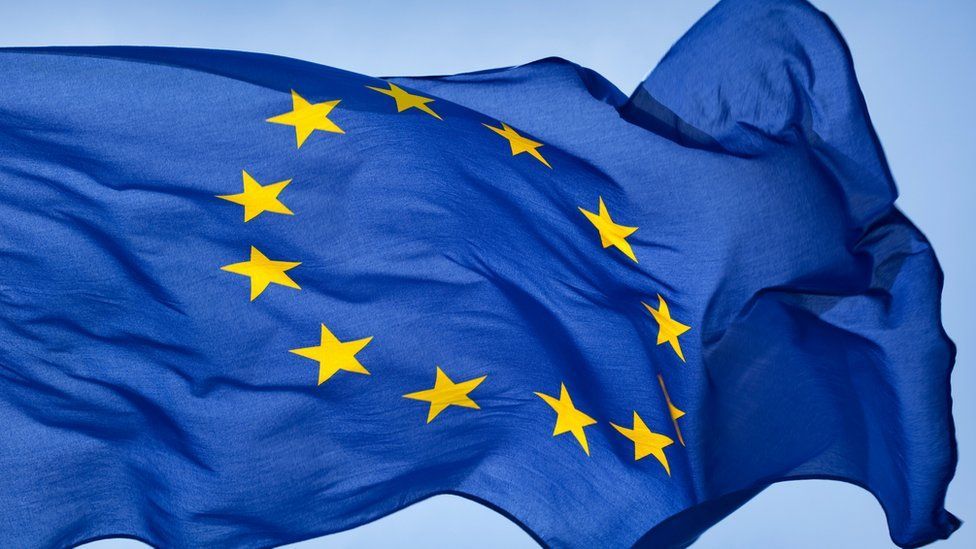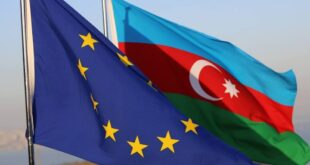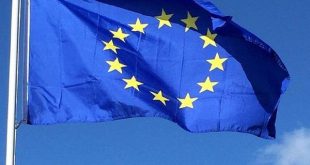
Strengthening transport links between the EU and Azerbaijan is particularly important today when transport routes south of Russia, such as the Middle Corridor, are growing in importance amid the war in Ukraine, Azernews reports, citing EU.
“Part of this corridor also passes through Azerbaijan, in particular the port of Baku, on the shores of the Caspian Sea, as part of the extension of the Trans-European Transport Network (TEN-T). Therefore, the development of transport cooperation between the EU and Azerbaijan plays an important role in strengthening Azerbaijan’s key role as a link between Europe and Asia,” the European Commission said.
The organization said that as a follow-up to the study on sustainable transport connectivity to Central Asia, the EU is considering organizing an Investors’ Forum in early 2024 in Brussels.
“The aim is to bring together public and private companies from the EU and Central Asia that are interested in promoting the effective development of sustainable transport links between the two regions,” the European Commission said.
The Middle Corridor is a transport and trade route connecting Asia and Europe, passing through several countries in the region. It is an alternative route to traditional corridors that starts in China and crosses Central Asian countries such as Kazakhstan, Uzbekistan, and Turkmenistan. It then passes through the Caspian Sea, Azerbaijan, Georgia, and Turkiye before reaching Europe. The middle corridor offers a land route connecting eastern parts of Asia, including China, to Europe, bypassing longer sea routes. A study prepared by the EU shows that by 2040, container traffic along the Middle Corridor could reach 270,000 TEU.
In the next 5 years, the demand for transport through Azerbaijan will be $23 million in the short term. But this is not the limit. If the country continues to invest in infrastructure, it will be able to increase the volume of traffic to $45 million.
Azerbaijan gained its independence in 1991, following the break-up of the Soviet Union, and quickly became a strategically important ally of the EU. A politically, economically, and strategically important agreement was signed on joint EU-Azerbaijani oil production in the Caspian Sea in 1994. EU relations with Azerbaijan are based on the European Union-Azerbaijan Partnership and Cooperation Agreement of 1999, which aims to enhance economic relations. Azerbaijan has been part of the Eastern Partnership since 2009. In 2017, the EU and Azerbaijan began negotiations on a new comprehensive framework agreement designed to increase political dialogue, trade, and mutually beneficial cooperation in a wide range of economic areas.
Trade cooperation
The agenda for Azerbaijan-EU relations is primarily focused on the energy, transportation and logistics sectors.
The EU is now Azerbaijan’s main trading partner, accounting for nearly 40 percent of the country’s foreign trade turnover.
The EU’s foreign trade turnover with Azerbaijan is expected to be $15.2 billion in 2021. In comparison, the figure for 2020 is $9.5 billion.
At the same time, the EU invested more than $21.5 billion in Azerbaijan’s economy from 2012 to 2021, and over 1,700 EU companies operate in Azerbaijan.
Azerbaijan has signed a strategic partnership agreement with nine European Union member states.
EU, World Bank’s technical assistance
The EU and the World Bank signed a grant agreement for technical assistance to the Azerbaijani government on February 16.
The three-year grant program, with a total budget of €5.25 million, will be funded by the EU and managed by the World Bank, according to the document.
The program’s goal is to provide advisory and analytical support, as well as to help the Azerbaijani government develop its potential in accordance with the document “Azerbaijan 2030: National Priorities for Social and Economic Development.”
“In general, there are no serious problems between Baku and the EU today. [There is] mutual interest and quite good mutual understanding. The only thing that overshadowed relations was the EU’s financial package for Azerbaijan and Armenia, but this issue has also been resolved,” the report added.
Cooperation to rebuild Karabakh
The EU is assisting in demining Azerbaijan’s liberated territories and has set aside €2.5 million for this purpose.
The involvement of EU companies and financial institutions in the process of restoring and reconstructing Azerbaijan’s liberated territories is currently under consideration.
According to the website, Baku also does not rule out the possibility that the EU can play an effective role in normalizing Azerbaijani-Armenian relations, including unblocking transport routes.
It added, quoting President Aliyev, who, in this regard, stated that “the community of European states, with vast political experience and powerful intellectual resources, can provide the negotiators with recommendations on a number of issues of settling bilateral relations, including the definition of borders. Azerbaijan, in any case, will welcome such steps.
 Oval Useful news from Azerbaijan and Caucasus
Oval Useful news from Azerbaijan and Caucasus


